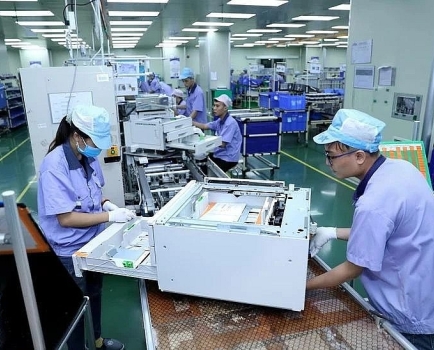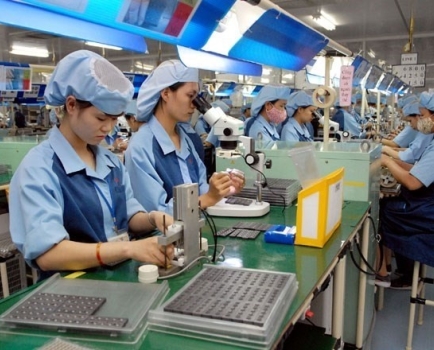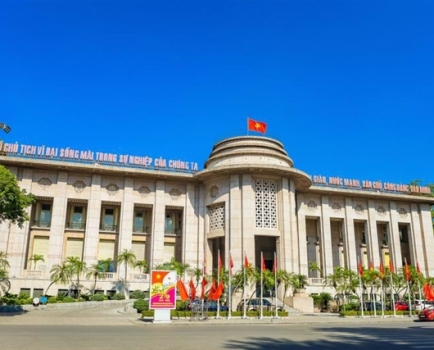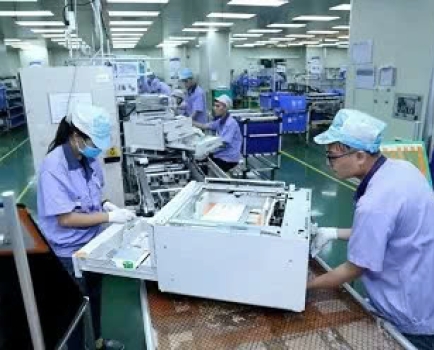EVFTA to sustainably boost Vietnam’s wood exports to EU
Thu, 04 Jul 2019 14:46:00 | Print | Email Share:
Vietnam and the European Union (EU) last week signed a landmark free trade deal that will slash tariffs on almost all goods, including wood and timber products. It is expected to give Vietnamese wood exporters better market access and more opportunities to expand their business.
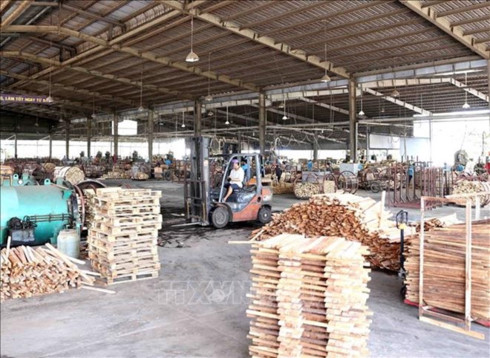
Wood products for export at a factory of Truong Phat JSC in Phuoc Hoa Industrial Park,
Phu Giao district, Binh Duong province.
The EU is among the top five buyers of Vietnamese wood and timber products, accounting for 13 – 17 percent of Vietnam’s wood exports.
In 2018, Vietnam’s export of wood and timber products reached a record value of 9.3 billion USD, 900 million USD of which was to the EU. The UK was the largest EU importer where Vietnam shipped 36.2 percent of its exports, worth 289 million USD, followed by France, Germany and the Netherlands.
According to the EU-Vietnam Free Trade Agreement (EVFTA), the EU will eliminate duties on many Vietnamese wood and timber products. For example, duties on plywood and particle boards from Vietnam will be cut from 7 percent to zero percent after five years while the 2 percent tariff on wooden kitchenware will be removed once the agreement comes into force.
Before the EVFTA was inked, Vietnam and the EU showed a joint commitment towards the implementation of the deal’s “Trade and Sustainable Development” Chapter, which includes provisions on sustainable forest management and trade in forest products.
In May, the two sides announced the completion of the process of approval and ratification of a Voluntary Partnership Agreement on Forest Law Enforcement, Governance and Trade (VPA/FLEGT), which took effect on June 1.
To implement the VPA/FLEGT, Vietnam is making efforts to develop a timber legality assurance system (VNTLAS) to ensure its exports of timber and timber products come from legal sources, including systems to verify that Vietnamese businesses were only importing timber that had been legally harvested and traded, according to General Director of the Vietnam Administration of Forestry Nguyen Quoc Tri.
This means that illegally harvested timber, as well as those businesses trading it, would not be able to be part of supply chains regulated by the timber legality assurance system that Vietnam is putting in place.
At the same time, Vietnam will adopt a mechanism for granting FLEGT licenses when the VNTLAS starts to operate.
The steps are expected to help the country enhance its competitiveness and boost wood exports to not only the EU but also other markets as Vietnamese wood producers will not have to waste time on proving the origin of their products.
On the other side, the EU is Vietnam’s second biggest supplier of legal wood materials, after the US. Last year, Vietnam imported 246.47 million USD worth of wood materials from the EU, up 5 percent from 2017. Imports mostly included oak, ash, beech and walnut.
Vietnam will benefit from wood materials imported from the EU and more importantly, Vietnamese producers will have opportunity to access advanced technology and high-tech machinery and equipment from the EU partners to improve their productivity and product quality, said Nguyen Ton Quyen, Vice President and General Secretary of the Vietnam Timber and Forest Product Association (VIFORES).
At the same time, goods imported from the EU will put pressure on Vietnamese firms so they have to improve themselves, he noted.
The EVFTA is hoped to contribute to the sustainable growth of Vietnam’s wood processing industry and make it one of the country’s key industries with international prestige in the next 10 years, Tri added.
By: VNA/VOV
---------------------------------------------
Same category News :



